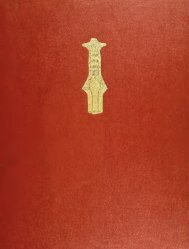What is History / by Edward Hallett Carr - Universal History Library
What is History / by Edward Hallett Carr - Universal History Library
What is History / by Edward Hallett Carr - Universal History Library
You also want an ePaper? Increase the reach of your titles
YUMPU automatically turns print PDFs into web optimized ePapers that Google loves.
WHAT IS HISTORY<br />
been establ<strong>is</strong>hed in th<strong>is</strong> university. It would not, I feel sure, occur to any of those engaged<br />
in investigating the causes of crime to suppose that th<strong>is</strong> committed them to a denial of the<br />
moral responsibility of the criminal. Now let us look at the h<strong>is</strong>torian. Like the ordinary<br />
man, he believes that human actions have causes which are in principle ascertainable.<br />
H<strong>is</strong>tory, like everyday life, would be impossible if th<strong>is</strong> assumption were not made. It <strong>is</strong> the<br />
special function of the h<strong>is</strong>torian to investigate these causes. Th<strong>is</strong> may be thought to give<br />
him a special interest in the determined aspect of human behaviour: but he does not reject<br />
free will - except on the untenable hypothes<strong>is</strong> that voluntary actions have no cause. Nor <strong>is</strong><br />
he troubled <strong>by</strong> the question of inevitability. H<strong>is</strong>torians, like other people, sometimes fall<br />
into rhetorical language and speak of an occurrence as 'inevitable' when they mean merely<br />
that the conjunction of factors leading one to expect it was overwhelmingly strong.<br />
Recently I searched my own h<strong>is</strong>tory for the offending word, and cannot give myself an<br />
entirely clean bill of health: in one passage I wrote that, after the revolution of 1917, a<br />
dash between the Bolsheviks and the Orthodox Church was 'inevitable'. No doubt it would<br />
have been w<strong>is</strong>er to say 'extremely probable'. But may I be excused for finding the<br />
correction a shade pedantic? In practice, h<strong>is</strong>torians do not assume that events are<br />
inevitable before they have taken place. They frequently d<strong>is</strong>cuss alternative courses<br />
available to the actors in the story, on the assumption that the option was open, though<br />
they go on quite correctly to explain why one course was eventually chosen rather than the<br />
other. Nothing in h<strong>is</strong>tory <strong>is</strong> inevitable, except in the formal sense that, for it to have<br />
happened otherw<strong>is</strong>e, the antecedent causes would have had to be different. As a h<strong>is</strong>torian,<br />
I am perfectly prepared to do without 'inevitable', 'unavoidable', 'inescapable', and even<br />
'ineluctable'. Life will be drabber. But let us leave them to poets and metaphysicians.<br />
So barren and pointless does th<strong>is</strong> charge of inevitability appear, and so great the<br />
vehemence with which it has been pursued in recent years, that I think we must look for<br />
the hidden motives behind it. Its principal source <strong>is</strong>, I suspect, what I may call the 'mighthave-been'<br />
school of thought - or rather of emotion. It attaches itself almost exclusively to<br />
contemporary h<strong>is</strong>tory. Last term here in Cambridge I saw a talk to some society advert<strong>is</strong>ed<br />
under the title 'Was the Russian Revolution Inevitable ?' I am sure it was intended as a<br />
perfectly serious talk. But if you had seen a talk advert<strong>is</strong>ed on 'Were the Wars of the Roses<br />
Inevitable?' you would at once have suspected some joke. The h<strong>is</strong>torian writes of the<br />
Norman Conquest or the American War of Independence as if what happened was in fact<br />
bound to happen, and as if it was h<strong>is</strong> business simply to explain what happened and why;<br />
and nobody accuses him of being a determin<strong>is</strong>t and of failing to d<strong>is</strong>cuss the alternative<br />
possibility that William the Conqueror or the American insurgents might have been<br />
defeated. When, however, I write about the Russian revolution of 1917 in prec<strong>is</strong>ely th<strong>is</strong><br />
file:///C|/Documents and Settings/Vidula/Local Settings/Temp/Rar$EX00.750/carr.htm (58 of 97)7/20/2006 11:28:45 AM







